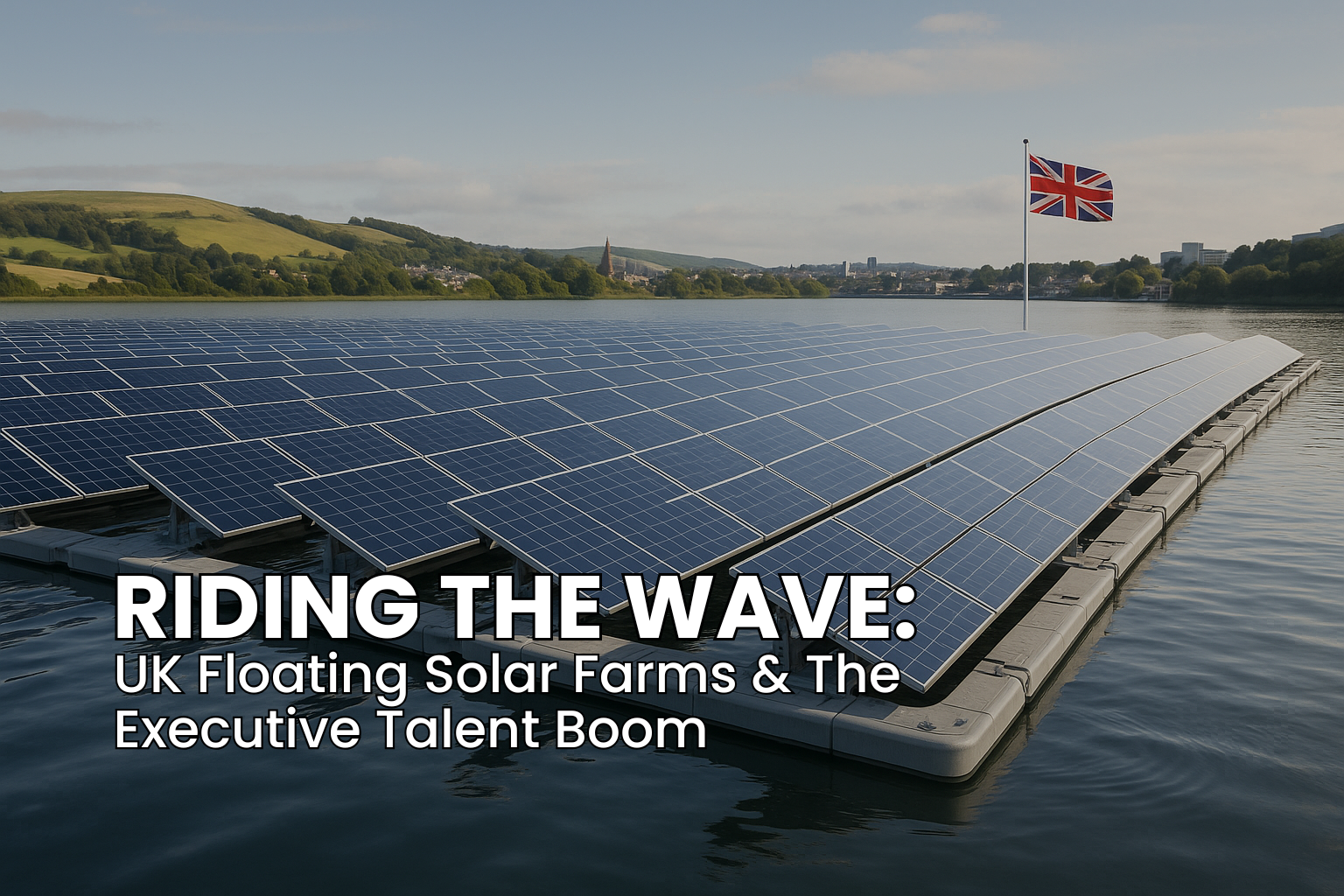Riding the Wave: The UK Floating Solar Farm Market and the Executive Talent Surge 🌊☀️
Riding the Wave

The UK’s floating solar farm market is making significant strides in the renewable energy sector. As available land for traditional solar projects diminishes and the government intensifies its commitment to net-zero targets, the country’s waterways are rapidly becoming prime locations for innovative solar installations. But what does this mean for market growth and, crucially, for the executive talent needed to lead these initiatives?
Market Growth: The Figures Speak Volumes 📈
The floating solar market is experiencing rapid expansion, with impressive projections:
- The European floating solar market, where the UK plays a key role, was valued at $3.68 billion in 2024 and is forecast to reach $12.63 billion by 2033 (source: LinkedIn/Edge Data Work).
- Globally, the market grew from $3.94 billion in 2024 to $4.82 billion in 2025, reflecting a robust Compound Annual Growth Rate (CAGR) of over 22% (source: The Business Research Company).
- Specifically in the UK, solar energy generation is projected to reach 14.43 billion kWh in 2025 (Statista), with floating solar capturing an increasingly significant share.
Industry analysts predict the floating solar market will maintain a CAGR of 23.7% from 2025 to 2033 (Growth Market Reports), outperforming traditional solar and many other renewable energy sectors.
What’s Driving the Surge? 🚀
Several key factors are propelling this rapid growth:
- Land Scarcity: Floating solar offers a solution for large-scale deployment without encroaching on valuable land resources.
- Government Policy: UK net-zero commitments and financial incentives are fuelling investment in this space.
- Technological Advances: Innovations in floating platforms and anchoring systems have made large-scale installations increasingly viable.
The Executive Talent Challenge 👩💼👨💼
With market growth comes an urgent need for senior leaders who can bridge the gap between renewable energy and marine engineering. High-demand roles include:
- Chief Technology Officers with dual expertise in solar photovoltaics and marine systems.
- Operations Directors experienced in the logistics of water-based installation and maintenance.
- Business Development Directors skilled at navigating complex planning permissions and stakeholder relations.
- Project Directors with proven track records in both renewable energy and marine construction.
The challenge lies in a significant skills gap. Ideal candidates possess cross-sector experience such as executives from offshore wind who understand solar, or vice versa. International experience from advanced markets like the Netherlands or Singapore is especially sought after.
What’s Next for Hiring? 🔍
- Premium Salaries: Executive positions in floating solar command salaries 15–20% higher than comparable roles in traditional renewables.
- Peak Recruitment Periods: Executive hiring activity is expected to intensify in Q4 and Q1, aligned with construction season preparations.
- Industry Consolidation: As the sector matures, mergers and acquisitions will create new executive opportunities and succession planning needs.
Strategic Takeaways for Industry Leaders and Recruiters 🎯
Now is the time to:
- Build deep market intelligence on emerging floating solar players.
- Proactively map and engage cross-sector talent pools.
- Position yourself as a specialist partner within this fast-growing and unique niche.
Conclusion
The UK’s floating solar farm sector is not just a renewable energy story it’s a leadership story. As the market surges ahead, the race is on to secure the executive talent that will keep these projects successfully afloat. Is your organisation prepared to compete? 🌍⚡



